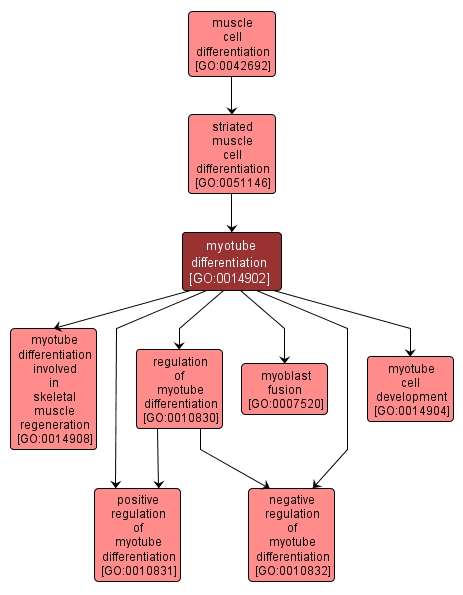| Desc: |
The process whereby a relatively unspecialized cell acquires specialized features of a myotube cell. Myotube differentiation starts with myoblast fusion and the appearance of specific cell markers (this is the cell development step). Then individual myotubes can fuse to form bigger myotubes and start to contract. Myotubes are multinucleated cells that are formed when proliferating myoblasts exit the cell cycle, differentiate and fuse. |














